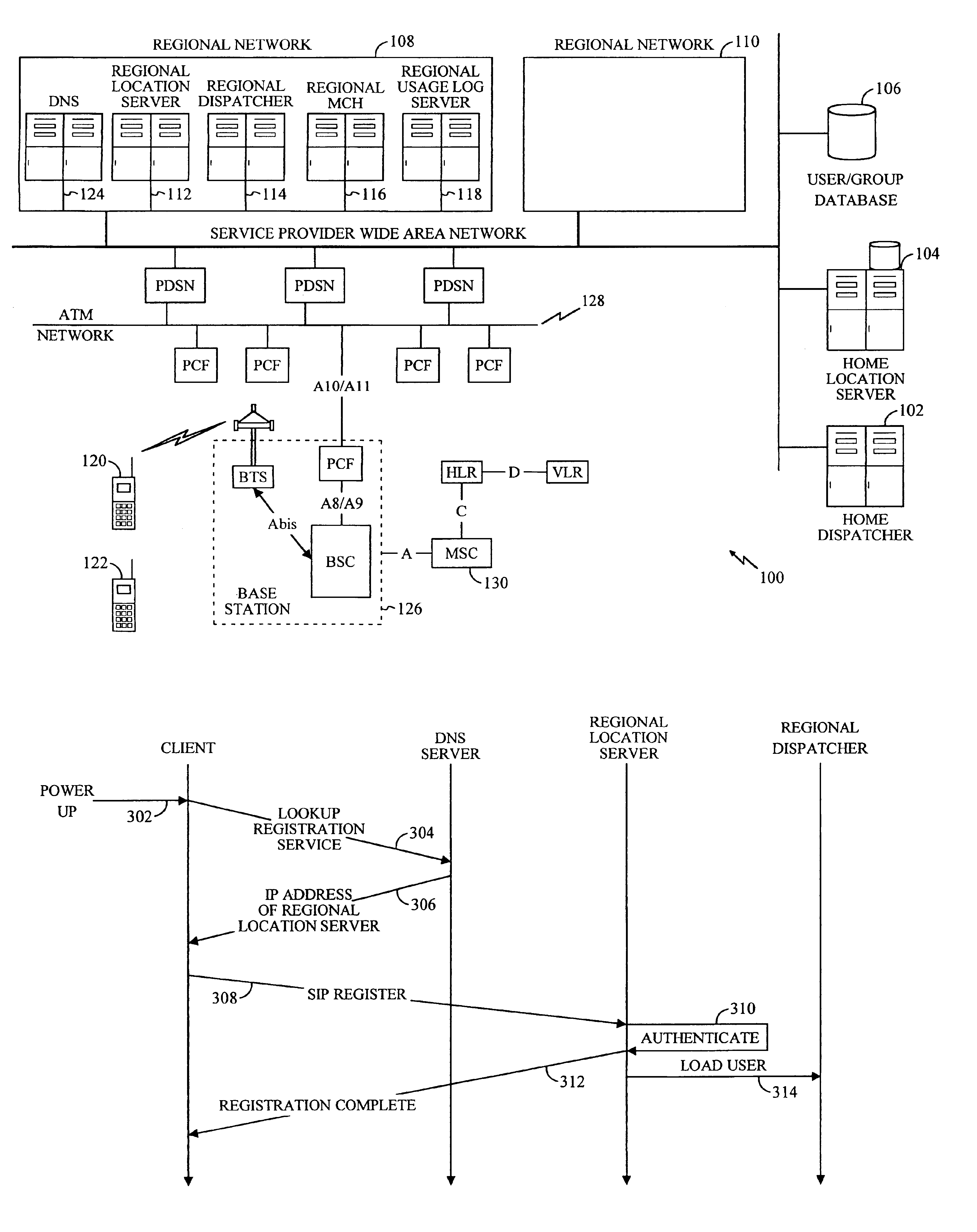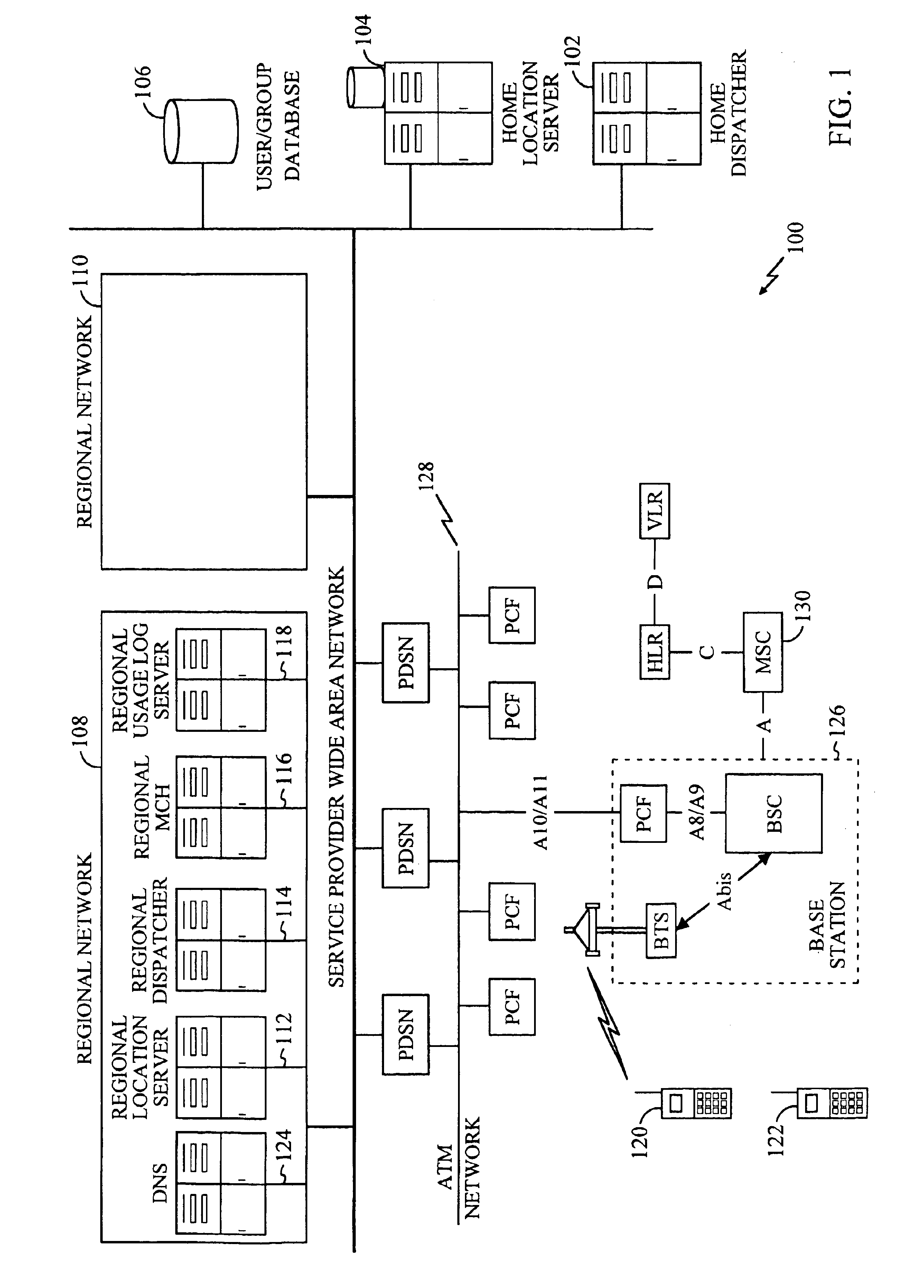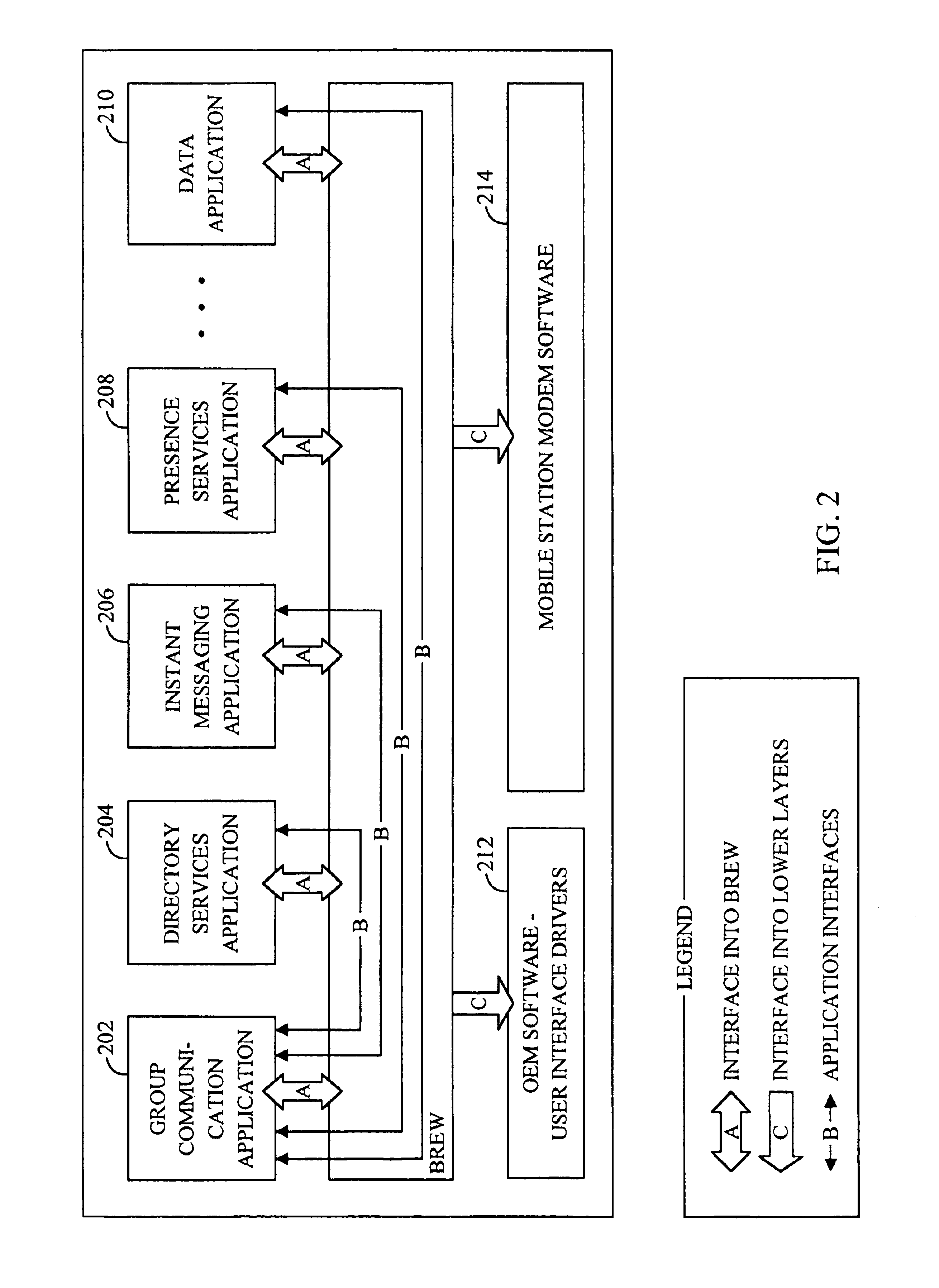Method and an apparatus for adding a new member to an active group call in a group communication network
a communication network and group technology, applied in the field of point to multipoint communication systems, can solve the problems of reducing service effectiveness, ptt latency may not be possibly reduced, and infrastructures provide limited opportunities for significantly reducing ptt latency
- Summary
- Abstract
- Description
- Claims
- Application Information
AI Technical Summary
Benefits of technology
Problems solved by technology
Method used
Image
Examples
first embodiment
In a first embodiment, IP datagrams may be filtered based on their sizes, as the SDB messages may carry a limited user payload. IP datagrams smaller than a predetermined size limit may be sent as SDB message, if destined for a mobile with no dedicated traffic channels. The group communication system may use such filters, as the application floor-request response message is quite small, e.g., 34 bytes including the IP headers.
second embodiment
In a second embodiment, an infrastructure vendor may define an IP-based service for encapsulating IP traffic destined for delivery to a mobile station. An IP server with knowledge of this service may transmit small IP, e.g., UDP, datagrams, appropriately encapsulated with IP headers, to this service for delivery to a mobile suspected of not having a dedicated traffic channel. The group communication systems may use this service to indicate to the infrastructure that the floor-request response message be delivered to the requesting client MS in SDB form, for example. Coordination of SDB traffic with pending pages or service origination requests is also important to insure quick and reliable delivery of user traffic.
In a third embodiment, an IP server may transmit special IP, e.g., UDP, datagrams with IP headers for delivery to a mobile suspected of not having a dedicated traffic channel. The IP server may tag the IP datagrams, e.g., by designating a special value in the IP header, fo...
third embodiment
In a third embodiment, the talker MS may avoid the race condition by not issuing a service origination request until after the talker MS has received a response to the floor-control request. In one embodiment, since the talker MS has no active dedicated traffic channel, the MCU may send the response to the talker MS on some available forward common channels, such as forward paging channel and forward common control channel. In one embodiment, the MCU may send the response to the talker MS in SDB form. The talker MS may rely on the RD-generated floor-control response to trigger its traffic channel re-activation, in the same fashion that the wakeup requests sent by the MCU trigger traffic channel re-activation for the listener mobiles. The race condition is avoided as the potential for simultaneous mobile-initiated service origination and network-initiated paging of the mobile is avoided.
Caching Network-Initiated Packet Data Triggers
The IP datagram, including the wakeup trigger 414, t...
PUM
 Login to View More
Login to View More Abstract
Description
Claims
Application Information
 Login to View More
Login to View More - R&D
- Intellectual Property
- Life Sciences
- Materials
- Tech Scout
- Unparalleled Data Quality
- Higher Quality Content
- 60% Fewer Hallucinations
Browse by: Latest US Patents, China's latest patents, Technical Efficacy Thesaurus, Application Domain, Technology Topic, Popular Technical Reports.
© 2025 PatSnap. All rights reserved.Legal|Privacy policy|Modern Slavery Act Transparency Statement|Sitemap|About US| Contact US: help@patsnap.com



